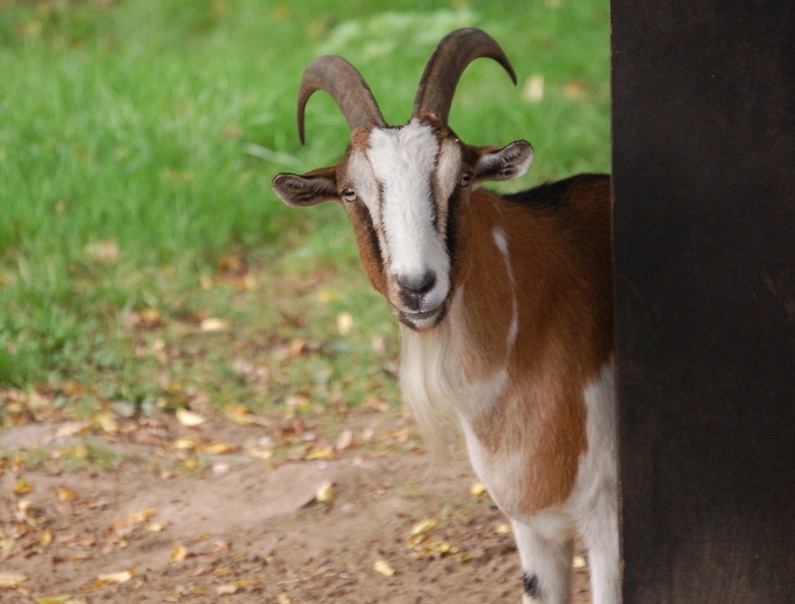Pet Pygmy Goats

With their playful temperaments and small, compact size, it is no surprise that pygmy goats are often sought after as pets. However, since goats are deemed livestock, you must check with your homeowners’ association or deed restriction before bringing one home. If in doing this you discover it is allowed, here are some tips for keeping your pet pygmy goats happy and healthy in their new home.
“Although some people do keep their pet goats indoors, they are not easy to house train and due to their activity level, curiosity, and dietary needs, we recommend they are kept outdoors,” said Dr. Philippa Sprake, a clinical assistant professor at the Texas A&M College of Veterinary Medicine & Biomedical Sciences. “They should have an outside area to play and a shelter from the elements, where hay, straw or shavings serve as good bedding sources.”
Their bedding, of whichever type you choose, should be changed regularly depending on the weather, size of shelter, and number of goats. Keep in mind that goats do not like getting wet, and they also require a cool area to withstand the summer heat. Since goats are herd animals, having at least two housed together will help to decrease stress and allow them company.
Dr. Sprake also explains that fencing around their enclosure is important, as goats are skilled escape artists and often push on fences and gates. Fences made especially for goats are recommended, although electric fences can also be used. However, goats will challenge them regularly, so maintenance is important.
“Diet is the most important aspect of a pet goat’s life, and most health issues we see are caused by inappropriate diets,” said Dr. Sprake. “They shouldn’t be fed human food and there are also some common garden plants that can be toxic to goats; therefore they should not be allowed out of their usual pen unsupervised.”
“Goats are ruminants, which means they require the predominant part of their diet to comprise of forage, such as hay or grass,” said Dr. Sprake. “We recommend that pet goats are fed minimal amounts of pelleted feed or grain as Pygmy goats in particular tend to be ‘easy keepers’ and gain weight fairly easily. They should also have access to a mineral block or loose mineral made specifically for goats to balance their diet of grass or hay.” Fresh water should also be readily available for pygmy goats at all times.
Two other important health care tasks are to vaccinate annually with a ‘CD&T’ vaccine that protects against over eating disease as well as tetanus, and monitor for gastrointestinal parasites that cause anemia and diarrhea in goats. You should consult with your veterinarian to set up a worm control program.
“One common problem we see with male pet goats is bladder stones causing urinary tract obstruction and an inability to urinate, which is usually caused by feeding too much pelleted feed or grain,” said Dr. Sprake. “You should observe that your male goats are urinating comfortably daily (they usually urinate when they first stand up) and if you have any concerns contact your veterinarian immediately.”
The temperaments of pygmy goats typically depend on the environment in which they were raised. Bottle fed kids in general will be much friendlier; however, in some cases this can lead to behavioral issues such as head butting, especially in the males. “We recommend that male goats be castrated at 3-4 months of age,” said Dr. Sprake. “Earlier castration can cause some health issues, and at 3-4 months old, the males will not smell ‘bucky’ yet.”
Though these playful animals can make good pets with the proper care, you should still consult with your veterinarian or an experienced goat breeder prior to bringing them home. If after consultation you decide pygmy goats are perfect for your family, following these guidelines will help ensure your new pets feel right at home.
Pet Talk is a service of the College of Veterinary Medicine & Biomedical Sciences, Texas A&M University. Stories can be viewed on the Web at vetmed.tamu.edu/news/pet-talk. Suggestions for future topics may be directed to editor@cvm.tamu.edu.


